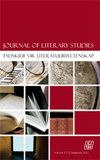瓦格尔和莫特利“古老”的痕迹:当代索马里小说的后现代主义解读
IF 0.1
4区 文学
0 LITERARY THEORY & CRITICISM
引用次数: 0
摘要
现代主义梦想的到来导致了文化的普遍化,这需要刻意放弃培育差异的传统生活方式,而是拥抱民族文化,将不同的社区聚集在一起。例如,非洲之角的殖民主义将不同的库希特社区置于单一的政治实体之下,其中大多数人接受了伊斯兰教,以寻求共同点。东非的其他社区不得不皈依基督教,以找到一个普遍的文化桥梁。这导致了一种假设,即大多数非洲人民都是同质的,因为过去那些提高差异的传统已经被现代国家和伊斯兰教和基督教等传统宗教等统一因素所消除。然而,对一些文学文本的批判性阅读表明,这种说法在一定程度上是没有根据的,因为在伊斯兰教之前的索马里宗教以及伊斯兰教的基本信仰存在一些方面,这些方面助长了差异。本文以后现代主义的方式阅读索马里当代小说,探讨前伊斯兰时代的索马里宗教对当代索马里文化的影响。利用雅克·德里达和约瑟夫·坎贝尔的思想,研究展示了神话和古代传统对Nadifa Mohamed的《黑曼巴男孩》和Nuruddin Farah的《秘密》中移民和当代文化的影响。本文章由计算机程序翻译,如有差异,请以英文原文为准。
Wagar and Motley “Archaic” Vestiges: A Postmodernist Reading of Contemporary Somali Fiction
The advent of the modernist dream resulted in the universalisation of culture, which entails deliberate effort to abandon traditional ways of life that foster difference and instead embracing national cultures to bring different communities together. Colonialism in the Horn of Africa, for instance, brought different Cushitic communities under single political entities and most of them adopted Islam to find a common ground. Other communities in East Africa had to convert to Christianity to find a universal cultural bridge. This has resulted in the assumption that most African peoples are homogeneous given that past traditions that elevated difference have been eradicated by unifying factors such as modern states and conventional religions such as Islam and Christianity. A critical reading of some literary texts, however, demonstrates that such claims are partly unfounded because there exist aspects of pre-Islamic Somali religion along with the fundamental beliefs of Islam, which bolster difference. This article is a postmodernist reading of selected contemporary Somali fiction to investigate the influence of pre-Islamic Somali religion on contemporary Somali culture. Using the ideas of Jacques Derrida and Joseph Campbell, the study demonstrates the impact of myth and the ancient traditions on migration and contemporary culture in Nadifa Mohamed’s Black Mamba Boy and Nuruddin Farah’s Secrets.
求助全文
通过发布文献求助,成功后即可免费获取论文全文。
去求助
来源期刊

Journal of Literary Studies
Multiple-
CiteScore
0.50
自引率
0.00%
发文量
0
期刊介绍:
The Journal of Literary Studies publishes and globally disseminates original and cutting-edge research informed by Literary and Cultural Theory. The Journal is an independent quarterly publication owned and published by the South African Literary Society in partnership with Unisa Press and Taylor & Francis. It is housed and produced in the division Theory of Literature at the University of South Africa and is accredited and subsidised by the South African Department of Higher Education and Training. The aim of the journal is to publish articles and full-length review essays informed by Literary Theory in the General Literary Theory subject area and mostly covering Formalism, New Criticism, Semiotics, Structuralism, Marxism, Poststructuralism, Psychoanalysis, Gender studies, New Historicism, Ecocriticism, Animal Studies, Reception Theory, Comparative Literature, Narrative Theory, Drama Theory, Poetry Theory, and Biography and Autobiography.
 求助内容:
求助内容: 应助结果提醒方式:
应助结果提醒方式:


